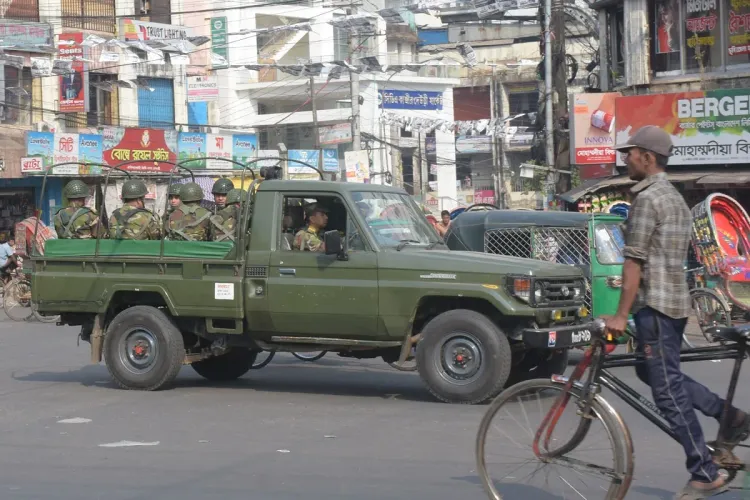Should Bangladesh Institute Reforms Prior to Upcoming Elections?

Synopsis
The EU Ambassador to Bangladesh, Michael Miller, emphasizes the necessity for reforms prior to upcoming national elections. His comments at a recent seminar highlight the importance of political inclusivity and international standards for credible elections.
Key Takeaways
- Essential reforms are required before the national elections.
- Political parties must work together for inclusivity.
- The EU aims for free, fair, and credible elections.
- Transparency in accountability for past violence is crucial.
- International observers are calling for a comprehensive electoral process.
Dhaka, May 5 (NationPress) Michael Miller, the European Union's Ambassador to Bangladesh, stated on Monday that essential reforms must be finalized in the nation before the national elections can take place.
During a discussion with members of the Diplomatic Correspondents' Association of Bangladesh (DCAB) at the National Press Club in Dhaka, local media reported Miller's insights.
"We aspire for political parties and the interim government to collaborate on these reforms," remarked the EU Ambassador.
Miller emphasized that the EU is committed to ensuring that elections occur in a free, fair, and credible manner in alignment with international standards.
When asked, he mentioned that the EU is prepared to offer assistance for the elections once the Bangladesh government determines the polling date.
The EU Ambassador pointed out that the interim government led by Muhammad Yunus must guarantee transparency in holding accountable those responsible for the fatalities and injuries from last year’s July Uprising, as reported by the leading daily Prothom Alo.
Recently, over 100 political activists, social representatives, human rights advocates, and senior British political leaders participated in a seminar in London addressing the current political scenario in Bangladesh, advocating for the involvement of all political factions, including the Awami League, in future elections.
The seminar, titled 'Democracy, Human Rights, Good Governance, Rule of Law, and the Role of Political Parties in Bangladesh's Current Political Landscape', was chaired by senior British politician and prominent jurist Lord Alex Carlile of Berriew at the House of Commons.
In his opening comments, Carlile highlighted the significance of conducting inclusive elections in Bangladesh, asserting that no election would meet international approval without the participation of all political parties, including the Awami League. He called on stakeholders to promote inclusivity in the democratic process.
Bob Blackman, Chairman of the All Party Parliamentary Groups-APPG (UK), urged for earnest efforts to ensure the upcoming elections in Bangladesh are fair, impartial, and inclusive.
A report from the International Crisis Group (ICG) in January, titled 'Bangladesh: The Dilemmas of a Democratic Transition', warned that the political challenges in Bangladesh are likely to escalate by 2025, indicating that the interim government's initial grace period has concluded.
Thomas Kean, ICG's senior consultant on Myanmar and Bangladesh, noted, "The honeymoon period for Bangladesh's interim government is now truly over. Political challenges are expected to rise as parties and key players negotiate reforms and vie for electoral leverage."
Earlier, UN Secretary-General Antonio Guterres also emphasized the need for inclusive elections in Bangladesh, encouraging the interim government under Yunus to make every effort to include diverse voices, particularly those of women, youth, and minority and indigenous communities.









